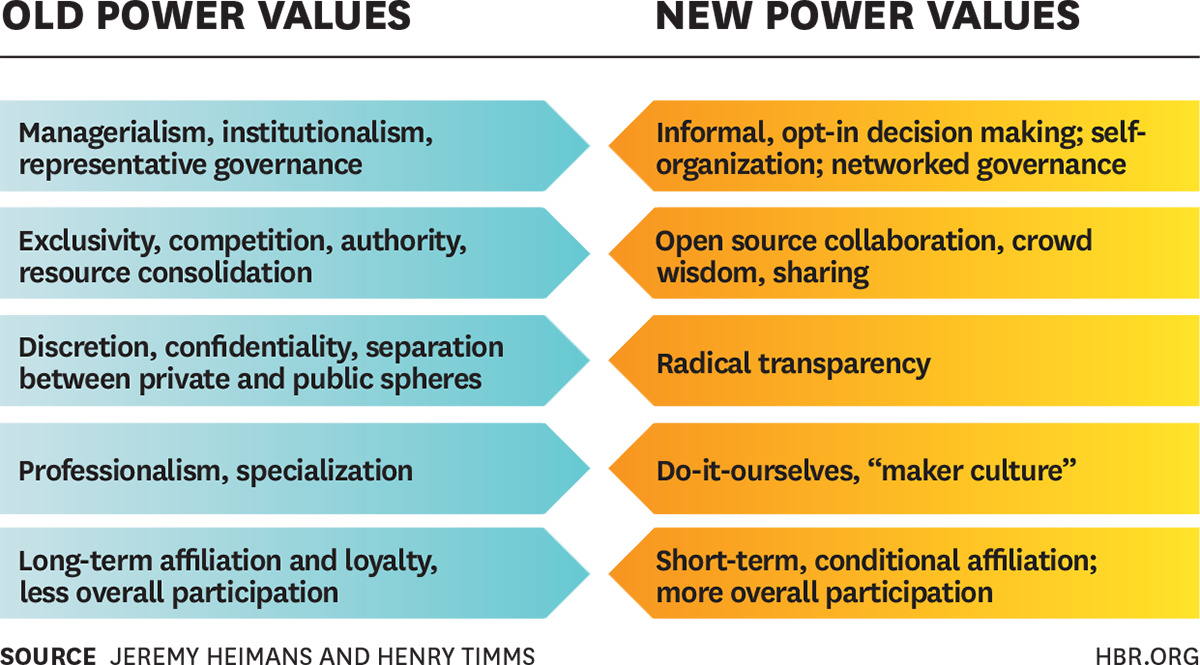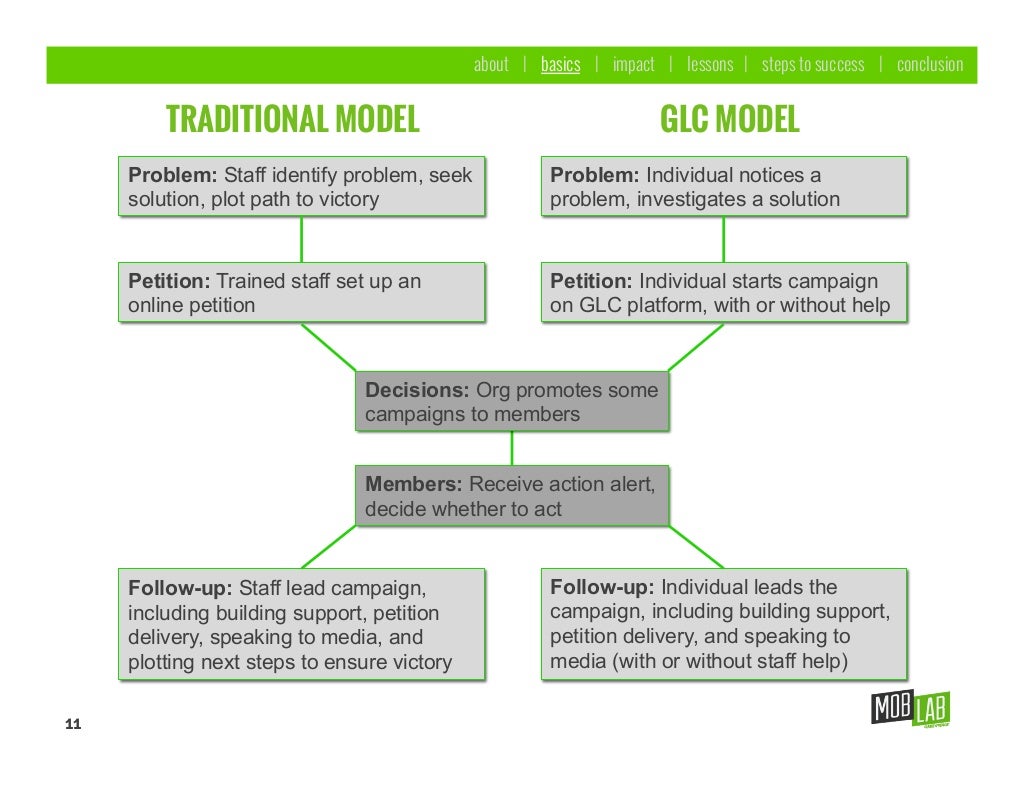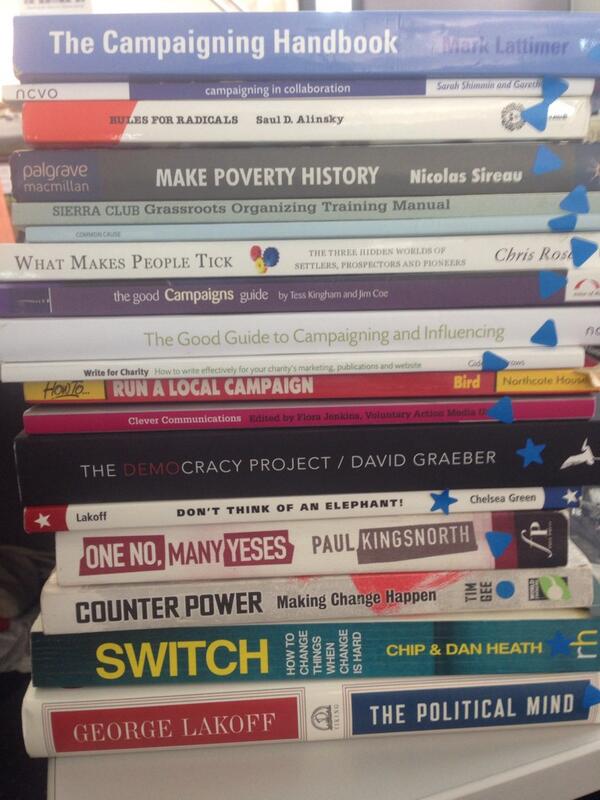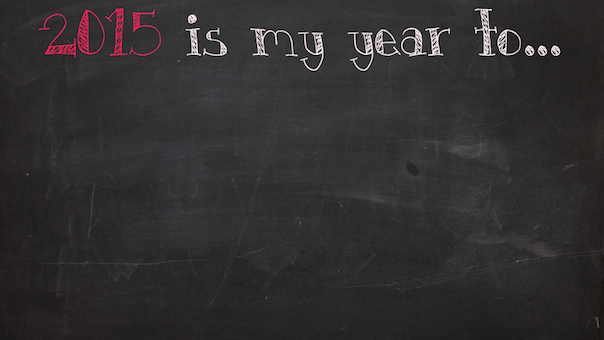Every year I collate a list of some of my favourite readings from the year. So settle in with a glass of mulled wine and enjoy…
Is Too Much Funding Going to Social Entrepreneurs—And Too Little to Social Movements? – This article totally hits the nail on the head about why we need to invest in advocacy, despite all the challenges.
Are Uber and Facebook Turning Users into Lobbyists? – Is the the new face of campaigning? More here.
How We Won Marriage: 10 Lessons Learned – A great playbook from one of the big campaign wins in 2015 in the US.
Why Nonprofit Leadership is so Darn Hard – because it is!
Taking a Cinderella issue to the ball: 11 lessons from a long campaign – I’m a huge fan of the work that Shelter have done to get housing up the political agenda. This is a great summary.
What are the implications of ‘doing development differently’ for NGO Campaigns and Advocacy? – Duncan Green at his challenging best.
2015 really was the first digital general election: here are 7 lessons you should know – remember the election – lots of good learning about what the Conservatives did to win, see also Paul Abbott at ConHome and Jon Quinn.
Slacktivism is having a powerful real-world impact, new research shows – time to revisit the assumptions about the impact of slacktivism – plus more here on why people protest.
Advocacy and Lobbying: What Can We Learn from the Bad Guys – we spend lots of time learning from our friends but what about those we target (clue – they often focus on obscure processes)
How the Mad Men lost the plot – Ian Leslie on how advertising is changing, but lots of application to campaigning and how we get our messages across.
Inside the war on coal – This week many have celebrated the successful conclusion of the climate negotiations in Paris, but the story of how groups like the Sierra Club have built momentum in the US is part of the untold story of how that deal could be reached.
Mobilising vs organising – This is a great summary of a cracking book. Looking forward to welcoming Hahrie Han to the UK next year.
Inside Invisible Children’s massive grassroots network – I could have selected dozens of articles from Mobilisation Lab but this is fascinating. If you’ve not already you need to sign up for there regular Dispatch mailing.
Charities shouldn’t campaign? History suggests otherwise… – 2015 has been a tough year when it comes to the space to campaign this reminds us our work is critical
Upwell – sad to see the end of this project to get people talking and advocating about oceans, but he blog lives on packed full of insight about how to get your issue into conversation on social media.
What have you read this year that you’ve enjoyed? Please use the comments below to post your favourite campaign reads from 2015.
Tag: reading
Campaigners #Shelfie – 6 books that should be on your reading list.
I’m often asked for suggestions of books campaigners should read. I could list hundreds, but here are 6 that I’ve found particularly useful in the last year. I’d love your suggestions and additions.
1 – The Power of Habit – you might be groaning under the weight of books available from authors like Malcolm Gladwell or Nate Silver. I’ve read far too many of them, but I found Charles Duhigg book is one of the most helpful. His book is full of insight about what makes us change our actions, and has a fantastic chapter on why Rosa Parks was successful and how movements start because of the social habits of friendship and grow because of the habits of a community. It’s also helpful if you’re trying to keep a new years resolution!
2 – Victory Lab – I’ve written before about why I think all campaigners should keep a close eye on what’s happening in the US to learn about approaches. Sasha Issenberg book is the best look at the data-drive approach that has been adopted across US politics. It’s a brilliant look at how the Obama campaigns and others have adopted microtargetting, testing and audience insight. Campaigners in the UK have much to learn on this and this book is a great introduction.
3 – A View from the Foothills – Campaigning is political, and its vital that every campaigner has a good idea of how politics work. To be honest, I’m sometimes time surprised about the level of political literacy that exists amongst some campaigners. if we want to win campaigns we need to know how the institutions we’re targeting operate. Chris Mullin’s diaries of his time as a MP and junior minister are one of the best reads out there, but you wouldn’t go wrong reading Alistair Campbell’s diaries either.
4 – Made to Stick – looking for ideas about how your communications can get traction, what the top brands do to ensure that you remember their adverts, then you need to read Chip and Dan Heath’s book. Its a practical, full of great illustrations and the principles will stick with you as you design your next campaign messaging.
5 – The World Is Not Ours to Save – this is a personal choice that I’ve found really helpful over the last year. Although its primarily written for faith-based activists, the premise of the book, that as activists and campaigners we need to recognise our limitations, and ensure we build in habits that allow us to rest and be refreshed is one I’ve found really helpful as I’ve been thinking about how I sustain a long-term career in campaigning. If you don’t find Tyler Wigg-Stephens book for you, perhaps try other authors who’ve written about spirituality and activism.
6 – How Organizations Develop Activists – A late entry into my list, but I adore this book. Hanhrie Han has done the legwork to work out why some grassroots groups succeed and others fail. I found myself changing from nodding in agreement to furiously scribbling down insight from Han’s study of two unnamed organisations in the US, for anyone who wants to think about how they can build a flourishing grassroots network . A good summary of why it works (or doesn’t) here and this by Jim Coe is a fantastic summary.
Read, Reflect, Get a Mentor, Plan to Rest – 4 resolutions to make your a better campaigner in 2016
Originally posted in January 2015 but still relevant for 2016!
I’m terrible at keeping new year resolutions (if you want a campaigner who takes them very seriously check out Oxfam’s Al Kinley), but I’m a big fan of using the start of a new year to try to build new habits.
So as you get back into the office here are a few thoughts about steps that you could take to be a better campaigner in 20156.
1 – Read. A wise person once said to me that ‘leaders are readers’ its a maxim that’s stuck with me, and is part of the motivation for this blog.
In20156, make time to read about campaigns that are winning, trends that will impact your campaigning (Mobilisation Lab is a good place to start (and hopefully this blog)), what’s going on in politics (as a start sign up for daily emails from Labour List, Conservative Home, Lib Dem Voice plus Times RedBox) and be inspired by campaigners from the past.
But don’t just read things you agree with, take a moment to follow blogs and read newspapers that put alternative perspectives across. Don’t assume that everyone thinks the same as you and your colleagues, they don’t. Believe it or not, you could be a better campaigner by reading the Daily Mail.
2 – Reflect. When I started my new job in July, I penciled in my diary to take the forth Friday afternoon of each month to escape my desk and spend a few hours reflecting on what was working and wasn’t working. It hasn’t happened, although I’m going to try again in20156 with a less ambitious fortnightly lunch slot!
In campaigning, it can often feel like a luxury to take an hour or two to reflect and review on the last week, fortnight or month, but research shows that reflecting on performance actually improves your work. Why not start the year by booking in 30 minutes every 2 weeks to reflect on the following questions;
- What is your campaign doing well and what should you continue to do?
- What is your campaign doing ‘okay’ or badly and what can it improve?
- In what ways has your understanding about the situation deepened or changed?
- What have your learnt in the last fortnight? What areas are you being stretched in?
3 – Get a mentor. I’ve really valued those who’ve invested time in helping me be a better campaigner. I’ve found meeting with someone on a regular basis, about once every 4 to 6 weeks for an hour or so over coffee, has really helped me in my career. I find a mentor is someones brain I can mine for ideas, someone who can help me see the bigger picture or coach me through a particular challenge I’m facing.
It can feel intimidating trying to identify a mentor, it could be someone more senior in your organisation (probably in a different team), a campaigner you admire or someone working in a related area you’re keen to deepen your experience in. Start out by suggesting you trial it for 3 months and take it from their, you’ll be amazed that people like to say yes when you ask them
4 – Plan to Rest. You might feel rested after a Christmas break with a few long lie-ins and quiet days, but book your next break now, and make a strategy for how your going to switch off from your work over the next year. We need you to be involved in the work of delivering social change for at least the next 12 years, not just the next 12 month, and sadly too many of us burnout. I love these resources from the team at Plan to Thrive, I can’t commend this article from Rockwood Leadership enough on how to develop good habits to avoid burnout and I’m a big fan of encouraging everyone to take a retreat.
14 great reads for campaigners from 2014
Settle in with a cup of tea, here are 14 great reads (in a rough order of how much I enjoyed them) that I’ve shared during 2014 that a worth a read.

1. Understanding New Power – brilliant from Jeremy Heimans and Henry Timms on how the world is changing. A must read (great summary in the graphic above).
2. Changing Trends: New Power, Neuro-Campaigning and Leaderless Movements – just love this paper on key campaigning trends from Hannah and Ben.
3. Purpose Driven Campaigning – 40 key principles for growing social movements drawn from Purpose Driven Church.
4. When the pillars fall — How social movements can win more victories like same-sex marriage – brilliant look at how same-sex marriage advocates in the US build a movement to win.

5. Grassroots-led Campaigns: Lessons from the new frontier of people-powered campaigning – brilliant MobLab report full of wisdom and insight of the people at the cutting edge of grassroots-led campaigns (GLC model in the graphic above). Basically anything MobLab writes is brilliant.
6. From fired up to burnout: 7 tips to help you sustain a life committed to social justice – offered without comment.
7. 6 things today’s breakout campaigns get right – great insight from the always brilliant Jason Mogus
8. “More of an art than a science”: Challenges and solutions in monitoring and evaluating advocacy – also enjoyed this by Jim Coe.
9. Stonewall’s secrets of successful charity lobbying – top tips from one of the best (also learning from Greenpeace here).
10. From Petitions to Decisions – how change.org is continuing to innovate.

11. Inside the Cave – a look at the digital and technology behind the Obama 2012 campaign (and here is more on how the campaign used twitter)
12. The Art of Coalition Campaigning – brilliant set of reflections from Ben Niblett.
13. 14 lessons from the Scottish referendum – useful reflections from the UK political event of the year (more here)
14. Rage Against the Machine – Lessons from Guzzardi–Berrios Race – how a 26-year-old former journalist organised to get elected in Chicago. Great lessons about working with the grassroots (and here on how to lose your seat when your a high-profile US politician).


